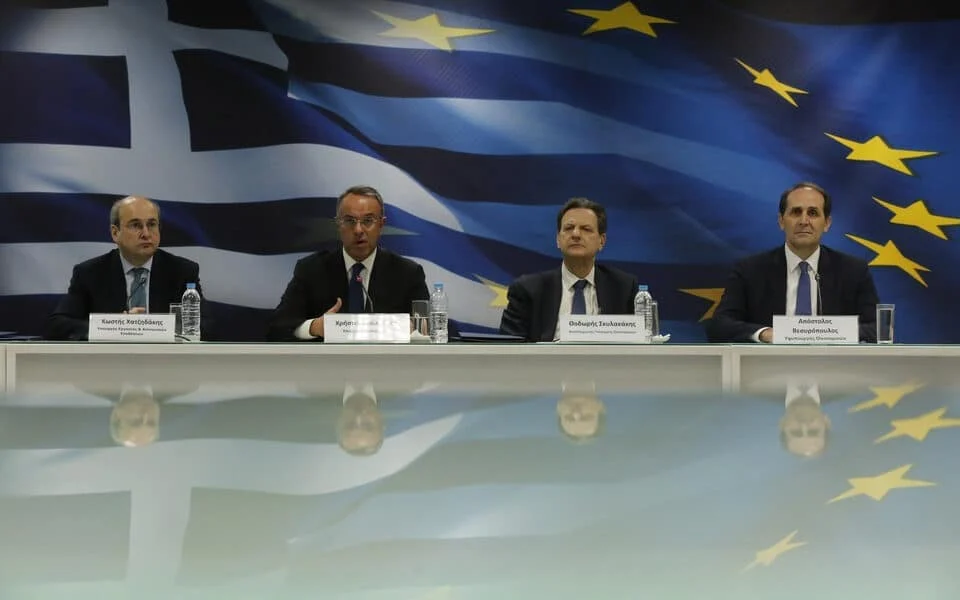Greek Government Offers Handouts as Elections Loom

The Greek government announced on Wednesday new handouts in a new package worth 800 million euros ($855 million) aimed at pensioners, taxpayers and businesses hit by inflation.
The package of measures, presented by Finance Minister Christos Staikouras, envisages payment of an extraordinary subsidy to pensioners who did not get a 7.75% pension increase, reviving older tax debt settlements, awarding taxpayers who kept their debt settlements “alive” but added new debt because of the pandemic or the inflation and extending a reduced VAT rate for another six months.
Pensioners who did not get a pension rise or they got a pension rise of less than 7% will receive an extraordinary payment by the end of March. The payment will be tax-free and will total 280 million euros.
It also provides for the extension of the reduced VAT rate on products and services such as transport, coffee, cinema, beverage and dance schools for another six months until the end of the year. The cost of the measure is 250 million euros.
Moreover, it provides for the payment of pending farm compensations at a cost of 120 million euros and reinstates a special consumption tax on farm diesel for the whole of the year at a cost of 76 million euros.
Other measures involve extending a subsidy for heavy work at a cost of 120 million, reviving of old tax debt settlement deals and including new debts under a new extended payment scheme of up to 72 tranches and improving an out-of-court debt settlement mechanism.
The government of Kyriakos Mitsotakis continues the tradition of previous administrations in offering handouts during a pre-election period. Parliamentary elections are expected to be held in April at the earliest.
Greek handouts may derail the economy
Several analysts however warn that distributing handouts may derail Greek finances.
Nikos Vettas a professor at the Athens University of Economics and Business says that there is an urgent need for Greece to run primary surpluses.
“In the recent past, there was a suspension of the application of European fiscal rules and easy access to cheap money. Now that financing is becoming more expensive, rules might change and there is an urgent need for the country to run primary surpluses,” Vettas who is also the general director of the Foundation for Economic and Industrial Research (IOBE) says in an article published in Kathimerini.
“In a country that has recently defaulted, one would have expected political parties to have reached a broad agreement that its treasury will never again come close to dropping into the red,” he adds.
Source: Greekreporter.com





